Interview with Ángel Luis Sánchez Moreno
At EG-REEDS, we are delighted to offer you this incredible interview with Ángel Luis Sánchez Moreno. Born in Madrid in 1995, he has established himself as one of the most promising figures in the world of the oboe. He was recently awarded the First Prize and the Audience Prize at the prestigious “Sony Music Foundation 13th International Oboe Competition of Japan.” Recognized for his exceptional expression, creativity, and ability to explore different colors in sound.
Ángel Luis Sánchez currently serves as an oboe professor at the Conservatorio Superior de Música de Aragón, in addition to his outstanding international career as a soloist. He has collaborated with renowned orchestras such as the Orchestra Mozart, Budapest Festival Orchestra, and the Mahler Chamber Orchestra. He has performed under the baton of maestros such as Daniele Gatti and Zubin Mehta on world-renowned stages, including the Lucerne Festival and the Royal Albert Hall in London. With a solo debut at the age of 13 and musical training at prestigious institutions under the guidance of masters such as Hansjörg Schellenberger and Lucas Macías Navarro, Ángel Luis is widely acclaimed for his sound and musicality, positioning him as a leading figure in his generation of oboists.

How were your beginnings in music / with the oboe? Were there more musicians in the family?
My life has been accompanied by music since I was born. My parents are not professional musicians, but they have always been passionate about music. Both play the guitar, and my mother has a great voice. As a child, my most cherished toy was always a guitar; I would end the day with my fingers sore from “banging” the strings.
I started studying at the conservatory when I was seven, alongside my sisters, and I am fortunate to say that, almost magically, the oboe chose me. I knew nothing about the oboe, and after a demonstration concert of the instruments, I was completely in love with its sound.
You debuted as a soloist at a young age. How did that early experience influence your relationship with music and your development as a professional oboist?
For a thirteen-year-old child, you can imagine that the experience was unforgettable. To be honest, it was almost like a game. I enjoyed music and being on stage so much that I didn’t pay much attention to it. Obviously, these experiences give you a lot for the rest of your career. The motivation that such a situation brings is inexplicable and gives you a lot of confidence. You always have to respect the stage a lot, but you learn to love it and eventually to need it.
Which teacher has had the most impact on your career?
Actually, all my teachers have influenced me in a very special way throughout my career. I have been fortunate to be surrounded by great professionals at the right time.
During my time in the professional degree and middle degree, I studied with Juan Ramón Domingo, and I will always be grateful to him for all the work he did with me. He was very disciplined in class and opened up a world of possibilities for me at that time, also introducing me to other oboists with whom I regularly studied and who were very important in my education, such as Ramón Puchades and Roberto Turlo. We spent whole mornings and afternoons in class and listening to music. It was a beautiful time in my life; with them, I felt that figure of the old master who sponsored you and dedicated himself to your education.
Later, I studied at the Real Conservatorio Superior de Música de Madrid with Juan Carlos Báguena and at the Escuela Superior de Música Reina Sofía with Victor Anchel and Hansjörg Schellenberger. It was the most intense stage as a student; after studying first and second years simultaneously at the two centers, I decided to finish the third and fourth years at the Escuela Superior de Música Reina Sofía. I still remember my classes with Schellenberger and Víctor Anchel very well; in fact, I constantly ask Víctor for advice; he is one of the most intelligent and brilliant people I know, that book you turn to when you need any complete and reliable information.
Then I studied the master’s degree in interpretation in Fribourg with Lucas Macías, probably the teacher who has influenced me the most in recent years. I have a great relationship with him, and since I met him at 15, he has always believed in my possibilities and talent, giving me opportunities and offering me all his support.
In my case, Maurice Bourgue, Ramón Ortega, or José Luis García Vergara have been an inspiration throughout my career, although I have not officially studied with them, there can always be teachers who, after several master classes, awaken something special in you.
If I have mentioned everyone and am unable to say who has influenced me the most (it would be almost like saying if you love mom or dad more), it is because as I said before, I have been fortunate that each of them has been part of my education at the right time, and they have all transmitted to me a common value that I repeat to myself every day like a prayer: “the musician must be at the service of music and not music at the service of the musician.”
What type of oboe do you play with?
Currently, I play with a Marigaux model M2 oboe. I feel very comfortable with Marigaux instruments right now. Until six years ago, the oboes that accompanied me were Yamaha oboes. I have always argued that each oboist has to find their instrument regardless of the “brandism” to which we are accustomed; each one has to find an instrument that fits their way of playing and that helps them bring out the best in themselves. Beyond all this, sometimes we forget that it is the instrumentalist who makes a brand great.
If you had to highlight a work from the oboe repertoire, which one would it be and why?
It may seem too obvious, but it would probably be Strauss’s concerto. I think all the colors and technical and interpretative resources that an oboist can encompass in this concerto are so extensive that in each interpretation, you discover something new. It was the first major concerto I played as a soloist at 17, with a young orchestra touring Europe; it will always be a very special concerto.
On the other hand, when I perform Baroque repertoire, I feel very comfortable, and it is very important to me. The first recordings I heard for oboe were the concertos for two oboes and orchestra by Vivaldi interpreted by Heinz Holliger and Maurice Bourgue; I listened to them every day on loop, and then I already sensed that the oboe would accompany me forever.
How were your beginnings in the orchestra?
My beginnings in the orchestra were in the conservatory. We had a band and an orchestra. I never felt comfortable in the band; the timbre and colors I heard in the symphony or chamber orchestra were incomparable in my opinion. The oboe always had a special shine when it sounded among the strings, and it has always been the path I have tried to follow.
What repertoire in the orchestra do you feel most identified with or like the most?
I think it changes as the repertoire you interpret grows, but it is true that I have always felt something special with Gustav Mahler. His jovial character, at the same time profound and mature, combining traditional and popular music with the most precious phrases written for the orchestra, bring out the best in me every time I listen to or interpret it. I recently performed his Ninth Symphony with Ivan Fisher and the Budapest Festival Orchestra, probably one of the most special and beautiful concerts of my life.
You have worked with an impressive variety of conductors and artists. How have these collaborations influenced your artistic approach and interpretative style?
It’s curious how the same work can be understood in such different ways depending on the artist or the conductor. In my opinion, a conductor who proposes something in an argumentative way will always be an inspiration and the result of a new reflection. You may agree more or less, but it is always interesting. In recent years, I have worked with many top-level conductors, but the ones I have most enjoyed and inspired me in a special way have probably been Ivan Fisher and Giovanni Antonini. They have great charisma, an absolute knowledge of the score, and their ideas go beyond what most people are able to see and perceive.
One of the things that also makes you grow is sharing the stage with great artists and listening to them up close (Patricia Kopatchinskaja or Janine Jansen). Everything is easy, coherent, and leads to brilliant ideas fitting together. It’s hard to know what influenced you from each one, but everything adds up, and you feel that you mature little by little.
How do you see the current musical landscape in Spain?
I always see it in a bittersweet way. On the one hand, I observe with sadness that there are more and more musicians with a high level who have to go abroad to seek a future because the job market here is very scarce, or they are directly given opportunities abroad, and here they find many more closed doors. For example, I live in Madrid, and in the last four years, I have worked barely two weeks in Spain while being called by the best orchestras in Europe. Is that coherent?
A country like Spain, which has special talent and is undoubtedly a world power in classical music, should invest many more resources in creating orchestras or improving the conditions of those we already have. We are filling all the orchestras in the world with artists seeking excellence and better conditions when we could have them here and enjoy them every week. It is clear that for a great training and growth as a musician, it is important to go out, see how things are done abroad, share experiences, etc., but in the end, everyone likes to come home. In Spain, we have always had this complex that what is outside is better than what we have here, but many of the best artists “from abroad” are Spanish, and we still struggle to bring in soloists with Spanish surnames without wanting to haggle over their fee or without giving them the recognition they have beyond our borders. Added to all this, in schools, music is treated as a minor subject, the media barely cover the musical life of our cities, and public and private institutional support for musical creation is insufficient.
And on the other hand, and despite what I said earlier, I also believe that it is the best musical moment in Spain. Orchestras are gradually renewing themselves and sounding really good. We have creators of cycles and very good festivals and some very well-trained managers who work every day trying to boost our orchestras and artists, refreshing our programming, innovating, and devising a new future for our culture.
I think it is something we should all reflect on, think about what we can contribute day by day in the search for excellence and the growth of our culture, and that this is not part of a utopia or a political ideology, but a common good, cared for, appreciated, and defended by all.
The Sony Music Foundation International Oboe Competition of Japan is recognized as one of the most prestigious competitions in the world for oboe. How do you perceive the importance of having won the first prize and also the special audience prize?
Obviously, I am very proud of the achievement. The audience in Japan is wonderful; they make you feel very loved and value your work a lot. The truth is that I am immensely grateful to all the audience and the jury of the competition for the prizes. For me, a large part of the importance of this competition lies in having rewarded my own identity. I have been able to show myself as I am, to show how I understand and feel the works I have played, without pretensions, with honesty, and, as I said before, putting myself at the service of music. The feedback from the jury and the audience was precisely that when they saw me on stage, they felt that I was not there to compete but to give concerts, with personality, maturity, and connecting with the audience, having something to say.
On the other hand, nowadays there is a lot of competition; there are many oboists playing at an incredible level, with very refined technique. Winning such a prestigious competition or obtaining a position in an orchestra seems almost impossible at times. The difference is made by very small details like those mentioned by the jury or the audience. There are very few oboists who have won the first prize of a competition of this level, all of them oboists whom I admire, who have inspired me throughout my career, and who still do (Lucas Macías, Ramón Ortega, Ivan Podyomov…). I feel immensely happy and proud of it, but I also feel a great responsibility. Many students and oboists write to me because they listen to my videos; for me, it is important to convey honest work, deep values, and that at least my work serves to contribute to culture and society.
Have you followed a special routine to prepare for the competition?
I have not really followed a too special routine, but I have carried out a slow and reflective study. For a couple of months before the competition, I studied a little every day, working very slowly on the pieces, analyzing what I wanted to communicate in each note. I have sought to be very aware of how I use my body when playing, how I find my resonances, how I place my throat and mouth to sing with my instrument. I sing all the pieces before playing them with the oboe and try to find that feeling at the moment of interpreting them. This study method is what I try to do regularly, but with so much intensity of work, it is often not possible to do it with too many guarantees or calmly. I forced myself not to work during the month before the competition to be able to be calm, not to study more, but to be able to be with that calm and awareness in the study.
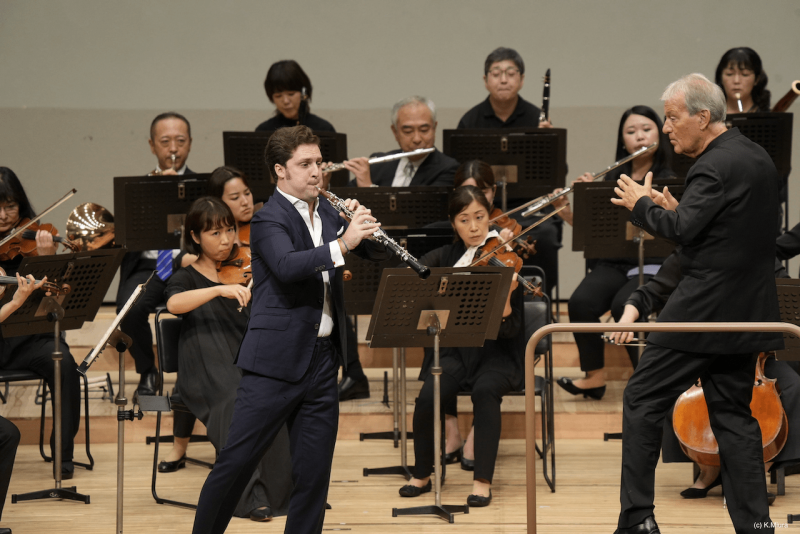
Ángel Luis Sánchez Moreno, oboe.
What advice would you give to oboe students?
I think the most important word for a student and the one that they have to keep in mind is PATIENCE. I meet students of all levels every day, and the most common thing in them is the need for immediate results. They have to understand that nothing is achieved overnight. The oboe is probably the most difficult instrument. Achieving the sound that one seeks, the articulation, or other technical resources requires many years of study, much sacrifice, dedication, and demand. Over time, technical problems are overcome; the most important thing is that in parallel, they cultivate their artistic and personal life, that they understand the intellectual part of the works they are playing, that they read, that they seek beyond the four notes they have to play. Anyone can become a great performer, but not a great artist. Music, its meaning, its beauty, and its transmission are much more important and complex than any performer.
On the other hand, sometimes the goals of the students in the short term are based on getting into an academy or doing a master’s degree at a certain university because it becomes fashionable and because some of their classmates follow that path. Nowadays there are many options and very good ones; sometimes it seems that if you have not passed through those three places that every oboist has in mind, you will not do anything in your career, and this is a mistake that many make. The important thing is that everyone finds the teacher or the academy that best enhances their way of playing and that gives them the most. They should not try to constantly compare themselves with the career their other friends are pursuing, seek what they really want, and strive for it, without excuses; sooner or later, everyone finds their place. They have to go beyond what they see on social networks and the bubble that is generated in the hallway conversations…
For me, it is very necessary to listen to a lot of music, not only for oboe and not only classical. Listen to the concertos written for other instruments, chamber and symphonic music, and if possible by different orchestras. Pop, rock, flamenco music…
They have to go to many concerts, with the intention of enjoying and learning. Doing a critical listening is very good and necessary, but not criticizing. Everyone who takes the stage deserves respect. They should not belong to one of those groups that exist after each concert trying to find the mistake in each interpretation of the soloist or the orchestra, wanting to dirty their path and do harm. Many unload their limitations or frustrations on others. This shows a great complex and insecurity, and that level of frustration and toxicity will only harm themselves.
Being humble will always make them try to surpass themselves and make them enjoy sharing music with everyone around them.
What are your future projects (upcoming concerts, classes…)?
In the coming months, I will be working with the SWR Symphonieorchester; we will tour Spain in February, playing Beethoven’s Sixth Symphony and Stravinsky’s The Rite of Spring under the baton of Andrés Orozco-Estrada. You will all be very welcome if you come to any of the cities where we will give the concerts!. The rest of the season, I will be in programs with the orchestra of the Teatro alla Scala in Milan, the Orquesta del Teatre del Liceu, the Orchestra Mozart, among others, or the Granada Festival.
I continue this year with my oboe class in Zaragoza; every day I enjoy giving classes more, it offers me great learning and a very thorough analysis of the instrument, my body, and everything that is heard from the outside when you are playing. I try to get involved as much as possible and to try to give them the best tools, as I was given. We have a very healthy class, with very good students, and above all, with good people, which is the most important thing.
I am also part of a project for the recording of a chamber music CD that makes me especially excited; we are in the process of searching for resources to carry it out, and I still cannot advance anything about it. It is a project of incalculable level and value, with several of the best musicians of today, and it will surely be very much liked by all oboists and musicians in general. Hopefully, we can start with it soon and show it to all of you!
Thank you very much to Ángel Luis Sánchez Moreno for this fantastic interview. And thank you all for reading us!
You can read more interviews on our blog.
See you at www.eg-reeds.com !

 English
English Español
Español Italiano
Italiano Deutsch
Deutsch Français
Français 日本語
日本語 简体中文
简体中文 한국어
한국어 Русский
Русский
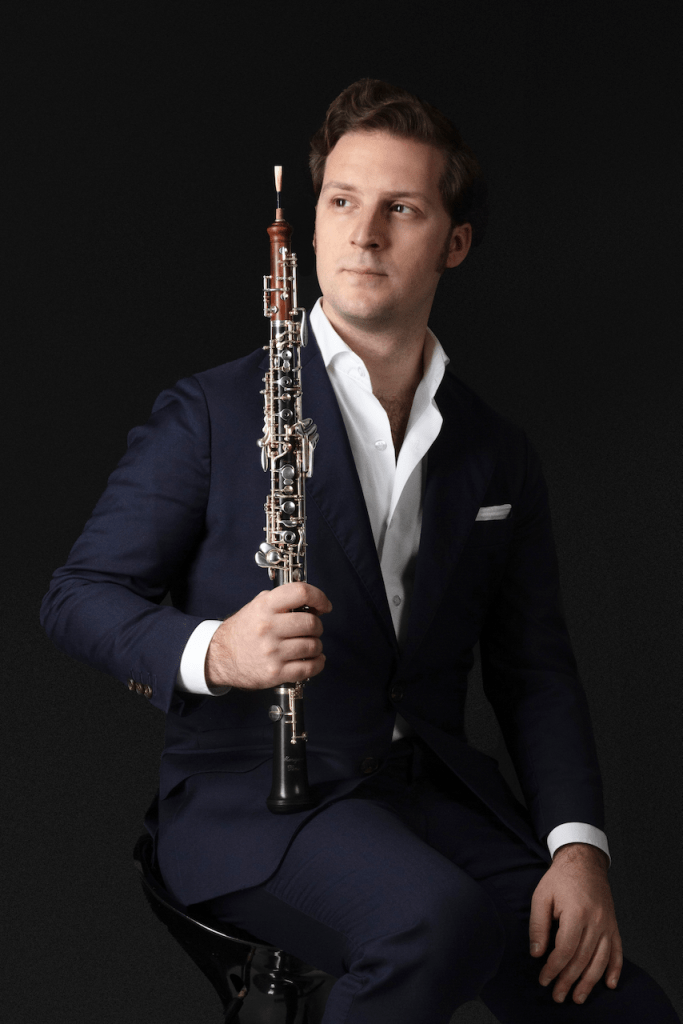
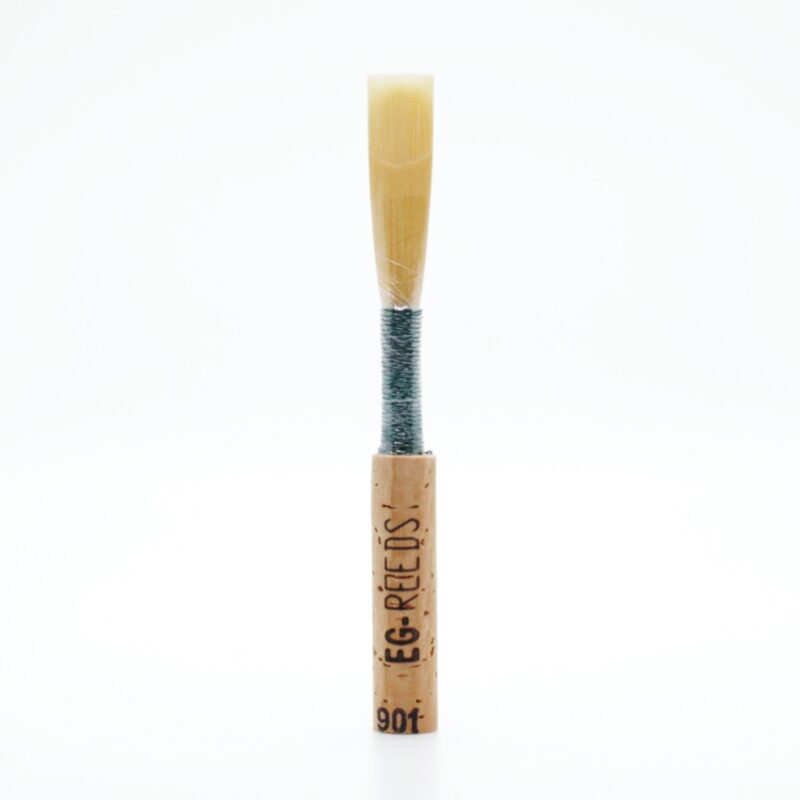

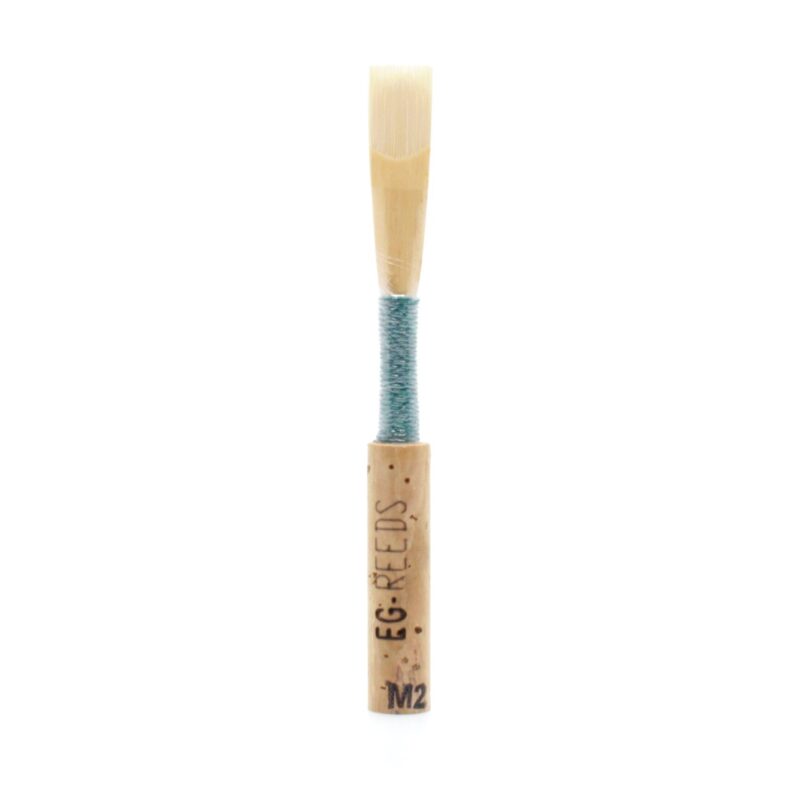
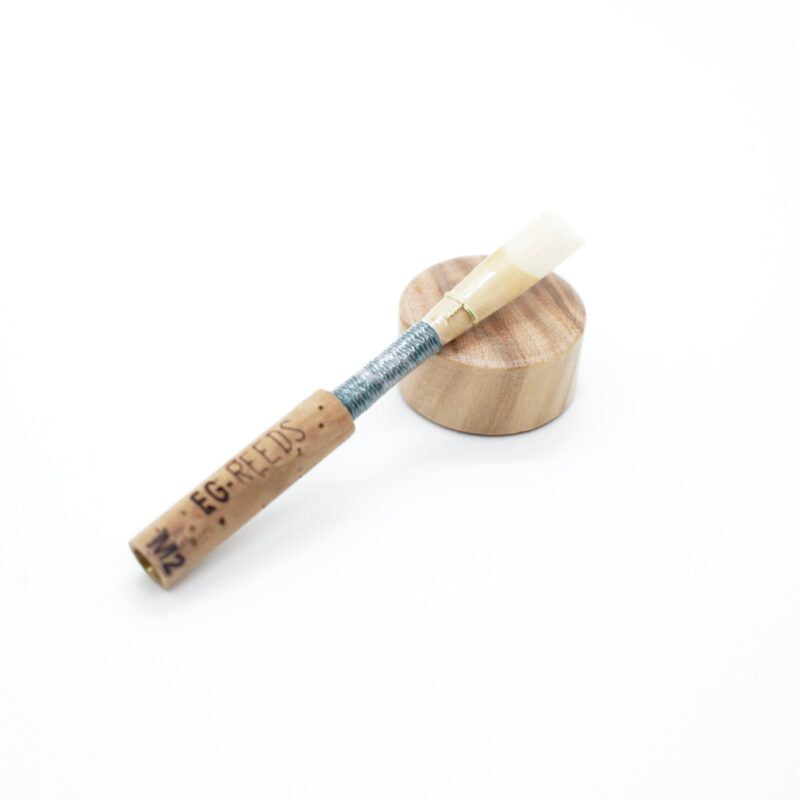

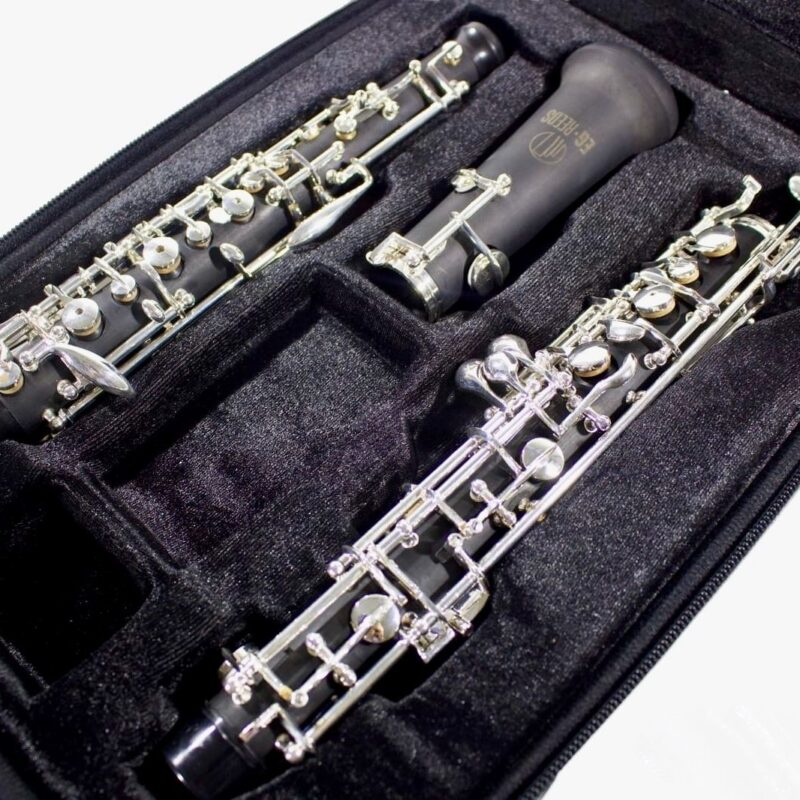

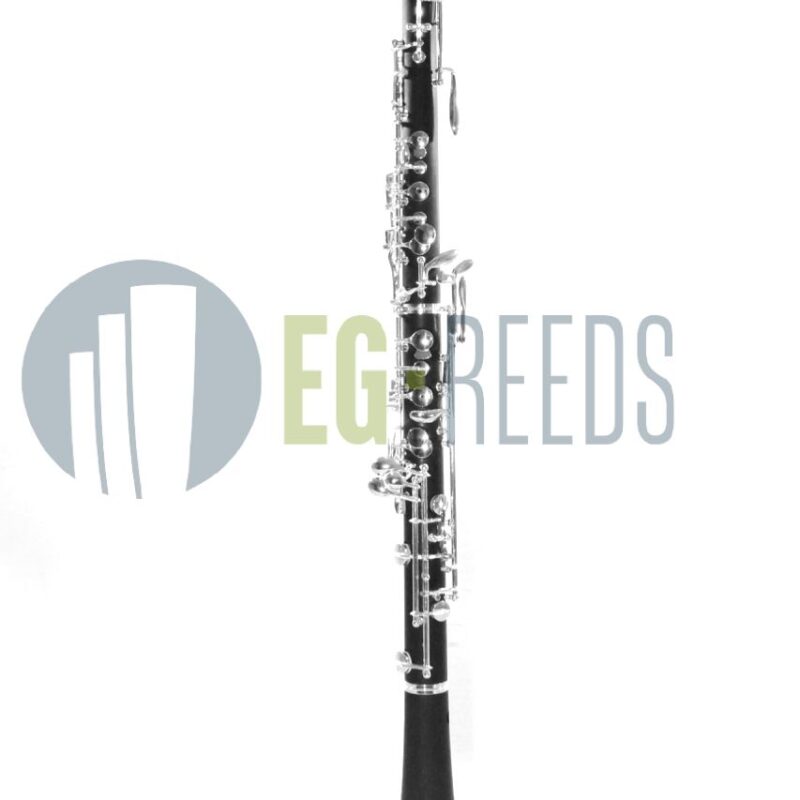
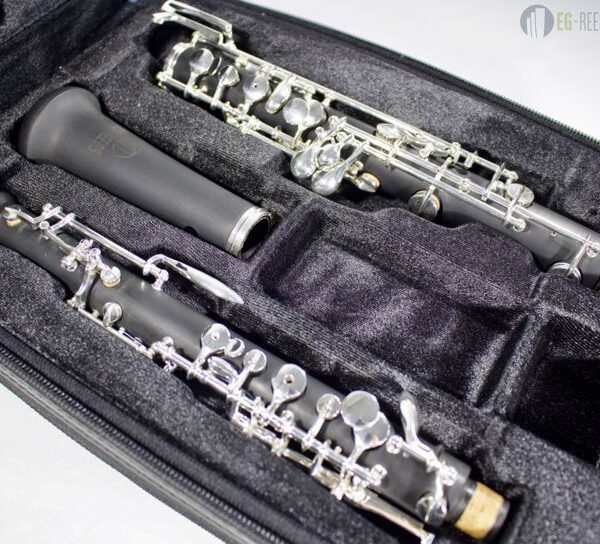
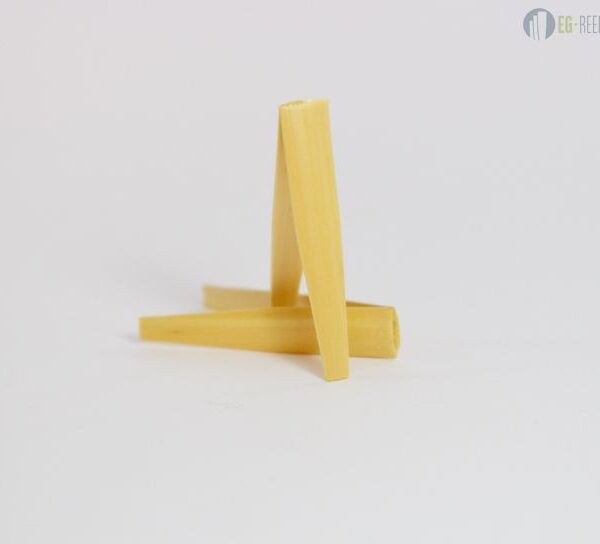
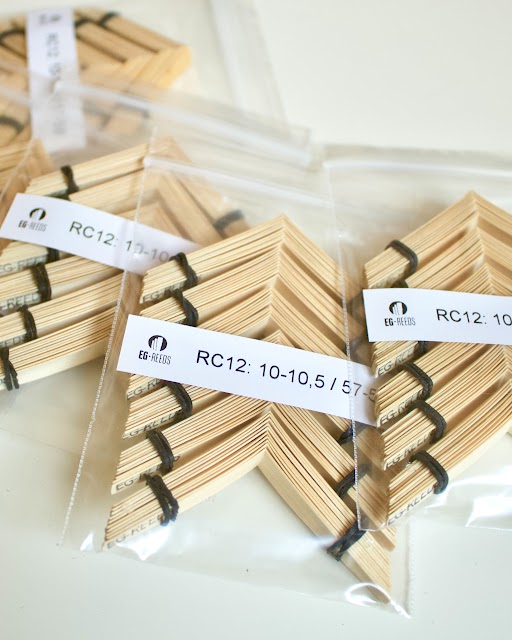


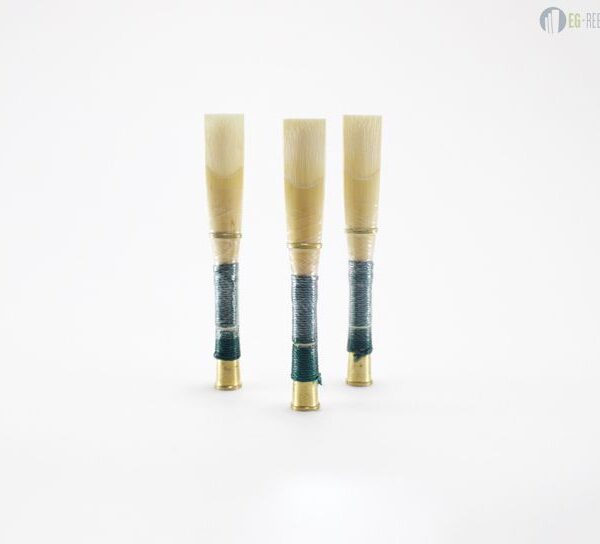



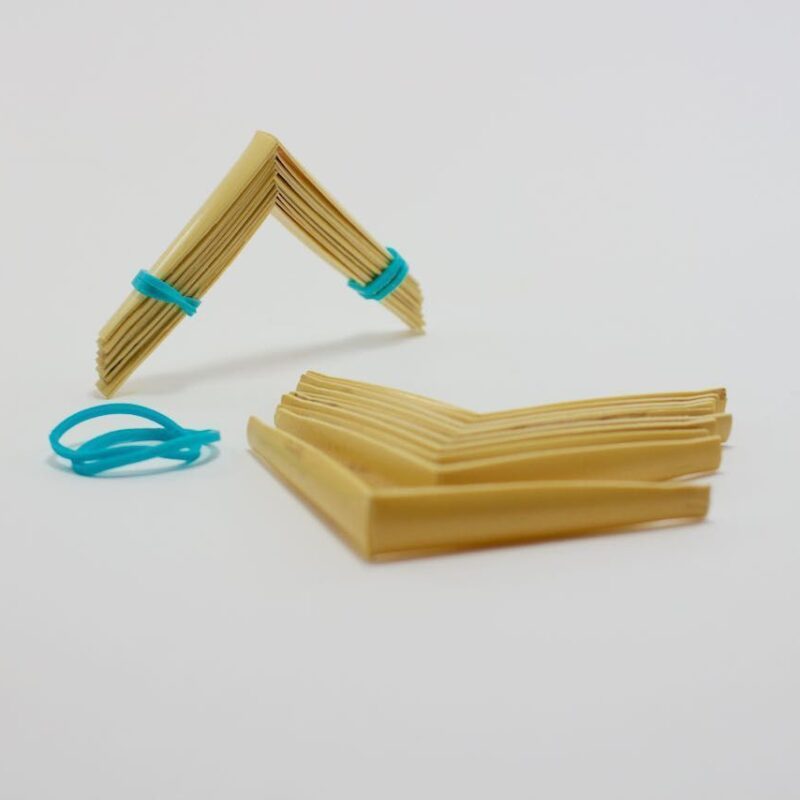
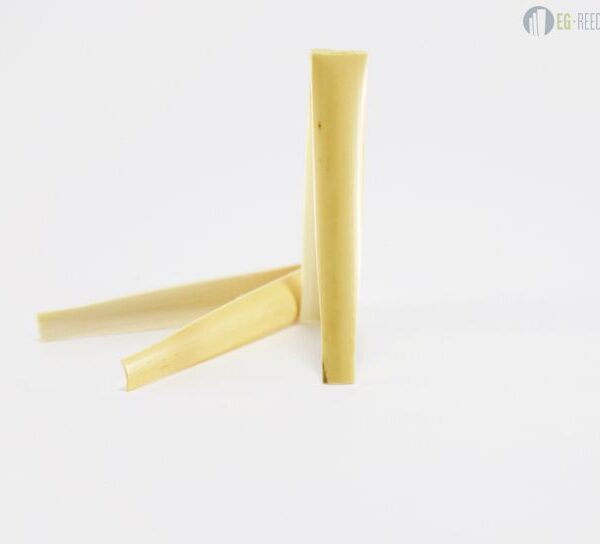




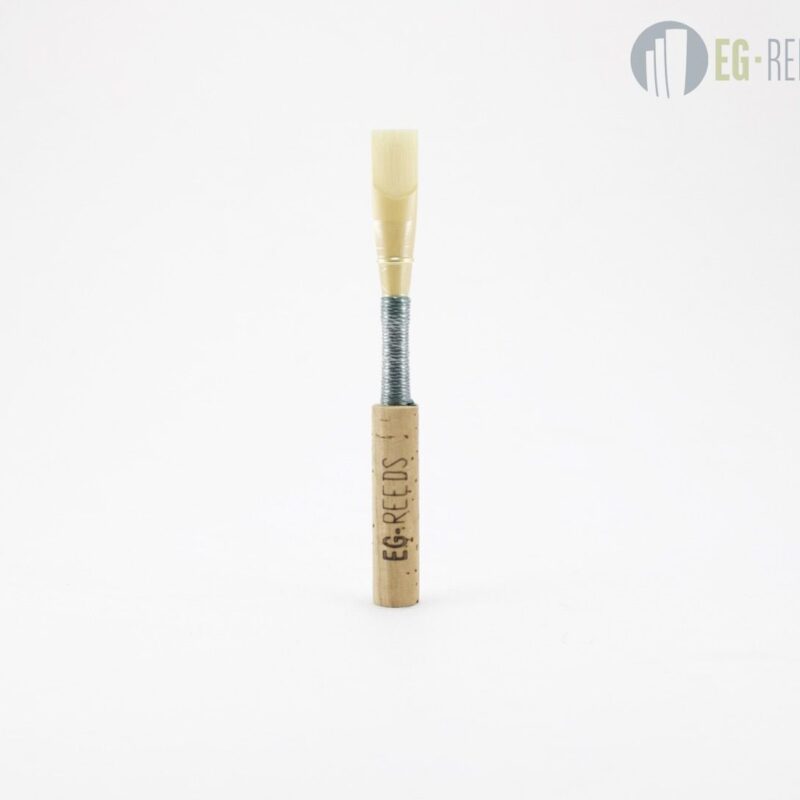

Palheta oboé profissional 901
Palheta oboé profissional M2
Oboé estudante intermediário EG-REEDS.
Palheta oboé Mayer
Oboé estudante iniciante EG-REEDS.
Canas oboé formadas EG-REEDS
Palheta oboé estudante iniciante EG-REEDS
Palheta corne inglês profissional EG-REEDS
Maurice Bourgue
Mar
O oboé na música de cinema
Mar
Albrecht Mayer
Feb
Palhetas de oboé: a palheta ideal para cada etapa
Jan
Heinz Holliger
Jan
Feliz Natal e Próspero Ano Novo 2025!!
Dec
Como comprar o melhor oboé para estudantes?
Dec
Quanto dura uma palheta de oboé?
Nov